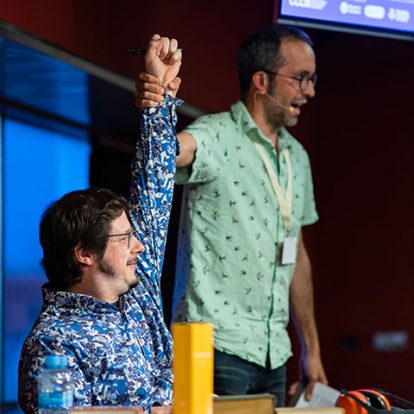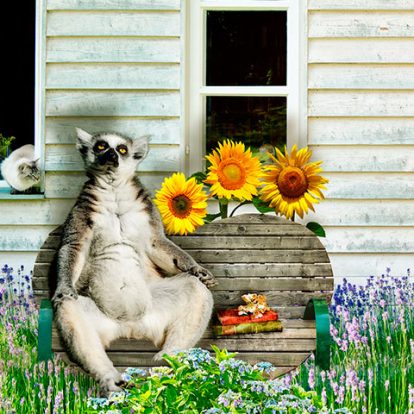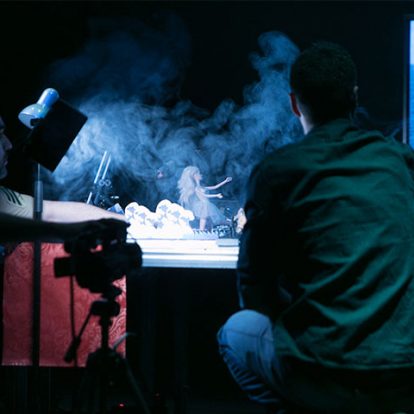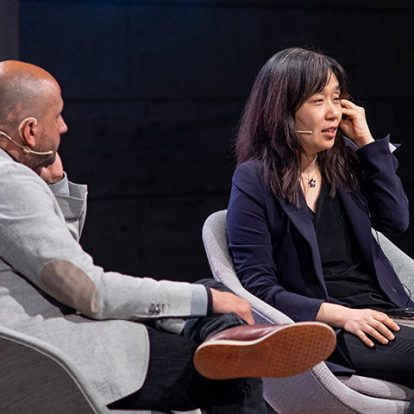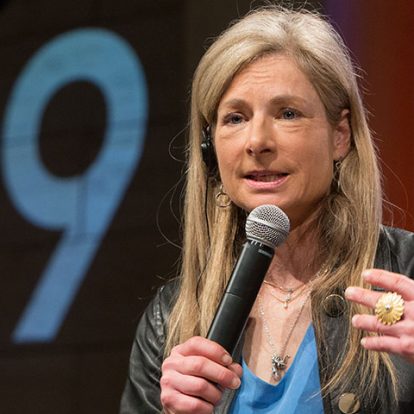Writing Labs
Eva Rexach (K Team)
24 February 2015
How does a story begin? What’s the creation process? What do authors do while they are writing? The Writing Labs will let us know where literature begins.
I was working on the proof of one of my poems all the morning,
and took out a comma. In the afternoon, I put it back again.
Oscar Wilde
There are people who believe that writing is easy. That all you have to do is string together words that make sense, find a storyline and sit facing the blank page in order to fill it with letters. Well, it may be that simple if what you’re writing is the shopping list, but the same is not true if what you want to do is write full-time to earn a living.
Writing means reading. Reading about what you want to write about and reading what you have written. It means re-writing, cutting, proofing, erasing whole paragraphs, putting in and taking out commas, eliminating characters, developing plots that did not exist. Writing means having a routine, it means sitting opposite a piece of paper or a screen for hours, it means not getting up from your chair until you have written a line.
None of this is easy and that is why nobody who is a writer will ever say that they wrote a novel, or a poem, or a story, without any effort. But it is true that that if you know some techniques, if you use certain tools, the words come with greater fluidity. For this reason, at Kosmopolis, we have creating the Writing Labs.
With Writing Labs we will try to unravel the secrets of the art of writing. And we will do this in the best way possible: through workshops offered by professionals of the letters in various genres. From the novel to poetry, from slam to film and digital literature.
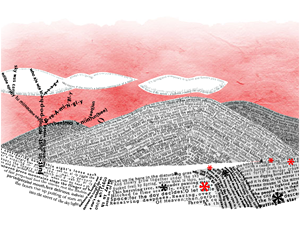
The Sweet Old Etcetera by Alison Clifford, 2006.
Cristina Rivera Garza will devote a workshop to documentary writing and disappropriation. The Mexican author, one of the most renowned voices in Ibero-American literature, will teach us how to create a self-critical view of the writing process. Eduardo Lago, writer, translator and journalist, will be daring with Inland Empire, by David Lynch, and Infinite Jest by David Foster Wallace, to talk about numerous possibilities for literary fiction and narrative metastasis. And Laura Borràs, director of the Institut d’Estudis Catalans (Catalan Studies Institute) and an expert in digital literature, will present the Electronic Literature Collection, a workshop on literary creation in the digital era and its essential works.
Hunger for Literature
In 1890, the Norwegian writer and future Nobel Prize Winner Knut Hamsun wrote Hunger, a novel that narrated the agonies of a writer trying to earn a living with words. The protagonist’s hunger is transferred to the reader to the point that it seems almost necessary to read the story with a bite to eat. This example may serve to present El estómago de los escritores (The Writers’ Stomach), a series of literary performances designed to talk about the relationship between literature and food from a real, but also a metaphorical angle. Another Writing Lab to talk, in this case, about the philias and phobias of people of letters.
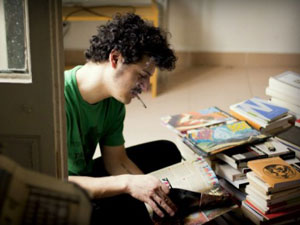
Unai Velasco
Unai Velasco and María Folguera will strike up a dialogue about the spiritual food of poets and playwrights: What do they do when they get up? Do they have breakfast immediately or do they write while fasting? Do they eat while crafting their stories? Bel Olid and Borja Bagunyà will be taking other routes: as modern-day Pantagruels, will talk about excess (literally and figuratively speaking) in Catalan literature. And, finally, we will have a musical dialogue between Maria Rodés and Nico Roig. All these meetings will be moderated by Jordi Nopca and will enjoy the dramaturgical advice of Marc Caellas.
And because at Kosmopolis we like to try a bit of everything, we will also have a slam poetry workshop, run by Bohdan Piasecki, member of the British organisation Apple And Snakes, and we will listen to the stories that the teenagers of Habitació1418 will have prepared during the storytelling workshops.
What do you think of our menu?
*All the Writing Labs will offer free admission with registration in advance, except for the El estómago de los escritores performances.

